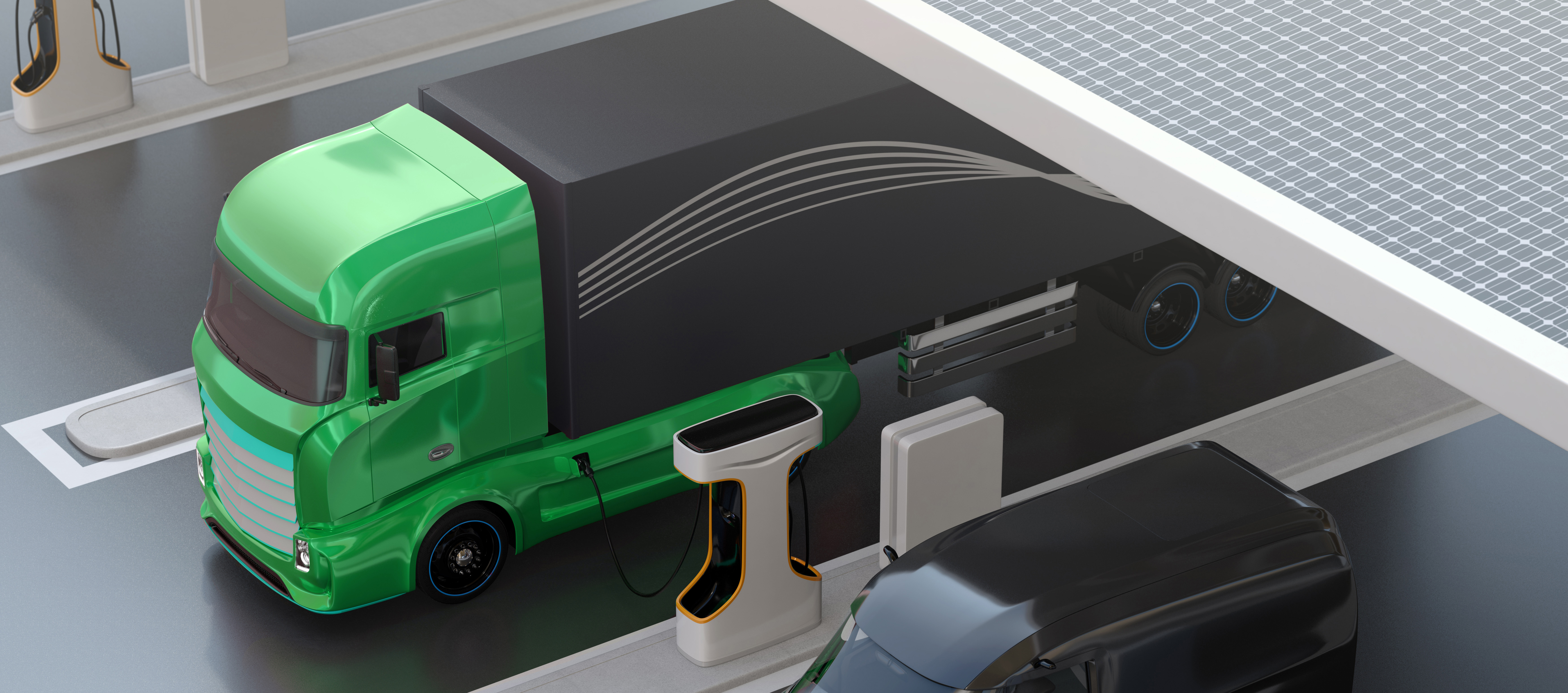MEDUSA
Context
The decarbonisation of transport is an essential building block for achieving climate goals. For the complete electrification of heavy-duty vehicles and buses, innovative approaches and an intelligent high-performance charging infrastructure are still needed.
The Project
The MEDUSA initiative, also known as Multi-Megawatt Medium-Voltage fast Charging, is divided into three sub-projects.
The first project phase (finished June 2023) prepared:
- the requirement definitions,
- the topological implementation, and
- the design and comparison of several solutions and a small-scale concept demonstration
for a multi-megawatt medium-voltage fast charging system for EV trucks.
The second project phase (started May 2024) will focus on:
- the construction of a large-scale demonstrator, based on the results of Phase I and which consists of: (a) a 1.5 MW, 1200 V up to a max. voltage of 1500 V DC/DC ultra-fast charger and (b) a 200 kW power electronics stack based on latest Infineon SiC technology allowing simple and fast integration as well as MW stacking for future charging stations, (c) a truck with a 1 MWh, 1.4 MW 920 V battery, developed by a Swiss truck manufacturer and (d) a Megawatt Charging cable and connector (MCS Level 3), which will be integrated into the megawatt fast charger.
- the analysis of the geographical conditions and traffic flows coupled with network simulation.
The third project phase (under preparation) will focus on:
- the development of a large-scale medium-voltage input stage
"Fast charging a truck requires the power of 1 - 3 megawatts. Providing this high power can be a challenge for the grid. Therefore, in the project, we are working with selected partners who have the technological know-how to develop a multi-megawatt fast charging station with direct medium-voltage grid connection as well as grid-stabilizing properties. In the future, these charging columns should enable both rapid charging of 3 megawatts or multiple charges of 150 kilowatts, which corresponds to the demand of around 20 passenger cars," explains Markus Makoschitz, project manager and principal scientist at the AIT Center for Energy. Furthermore, CO2 emissions are to be reduced by connecting battery storage systems in combination with solar power technology.
A final live event will demonstrate at AIT a megawatt charging process with a DC megawatt charger made in Austria.
Funding
The MEDUSA project is funded under the Zero Emission Mobility, a research and demonstration program of the Climate and Energy Fund in the field of sustainable mobility and energy supply.
Phase I: https://www.klimafonds.gv.at/call/zero-emission-mobility-2021/






